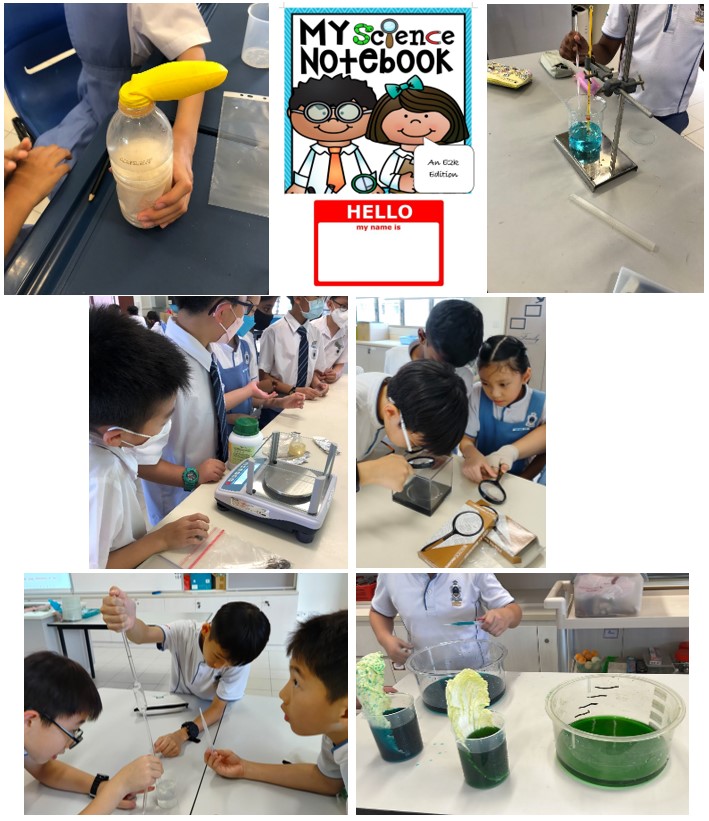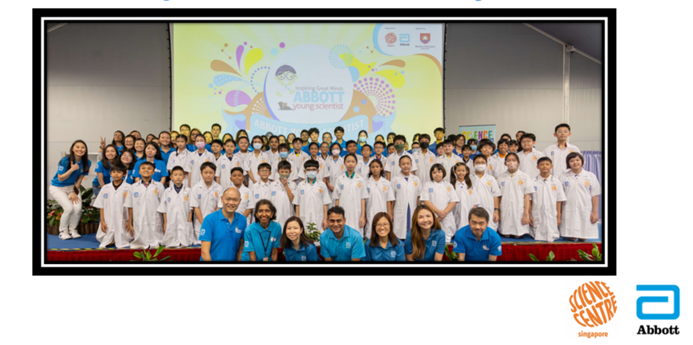Science
Science
- Howard Gardner
The CCPS Science departmental programmes are developed so as to ignite and nurture our children’s passion for Science. Through inquiry-based learning, children are provided with myriad opportunities to acquire knowledge and concepts based on investigations, apply science process skills so as to inquire about the world, communicate findings and develop attitudes and values that are essential to the practice of science.
We recognise that children are naturally curious and have a sense of wonderment about the things around them and we leverage on this by designing learning journeys both within and outside school.
Department Key Programmes
P4 to 5 Excellence 2000 (E2K) Science Programme
The E2K Science Programme Singapore is a Science enrichment programme for primary students who demonstrate interest and ability in science. The programme is adapted from Israel’s E2K Programme which is developed by the Israel Centre for Excellence through Education (ICEE). The programme aims to develop scientific inquiry process skills among high-ability primary students in Science, as well as nurture other important 21st century competencies such as resilience and resourcefulness, critical and inventive thinking, and effective communication skills.
Children learn Science by going through the same process that scientists use to generate knowledge in Science. Just as scientists make mistakes in the real world, children are allowed to make mistakes in E2K and teachers help children to learn from the mistakes. Through collaborative learning and guidance provided by the teacher, children practise scientific thinking and reasoning, develop confidence and independence in carrying out scientific inquiry as well as scientific habits, attitudes and dispositions.

Abbott Young Scientist Award for P4
In an attempt to inspire innovators of tomorrow, CCPS supports the Abbot Young Scientist award to recognise children who demonstrate a keen interest in the pursuit of science. Selected children will have the chance to participate in a structured programme at the Science Centre where they will receive mentoring and have the opportunity to present their work.

Practices of Science (POS) Learning Packages for P3-P6
Practices of Science (POS) serves to highlight that Science is more than the acquisition of a body of knowledge; it is also a way of thinking and doing. The POS represents the set of established procedures and practices associated with scientific inquiry, how scientific knowledge is generated and established, as well as how Science could be applied in society.
In particular, it is important to appreciate that the three components representing the cognitive, epistemic and social aspects of POS are intricately related. In the learning of Science, children will need to use concepts and integrate skills and processes to inquire about the world around them. Our learning packages cater to different learning styles and help children hone their skills.
Department Strategies
Inquiry Based Learning using the BSCS 5E instructional model
TCA (for MCQ)
Topic – Which topic is this question from?
C oncept – Which scientific concept is this question testing me?
A pply – Eliminate distractors which are definitely incorrect.
OCE (for open-ended questions)
Observation – What are the clues in the question?
Concept – Which scientific concept is this question testing me?
Explain – Ensuring that the question is answered by linking concept to the question posed.

